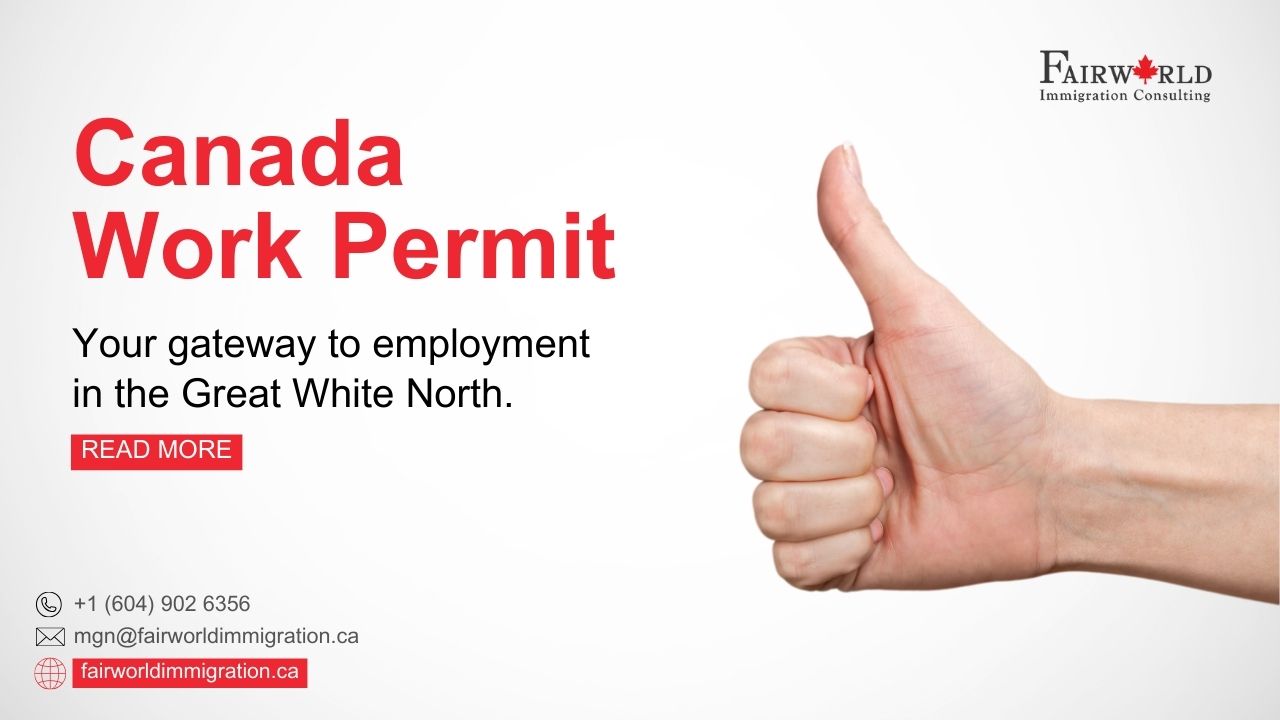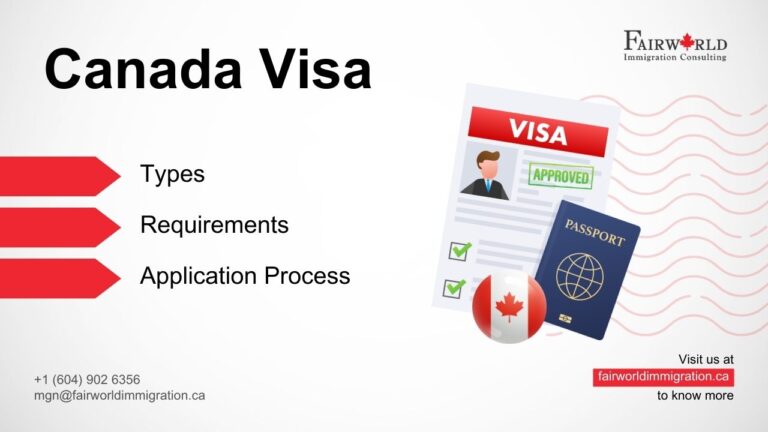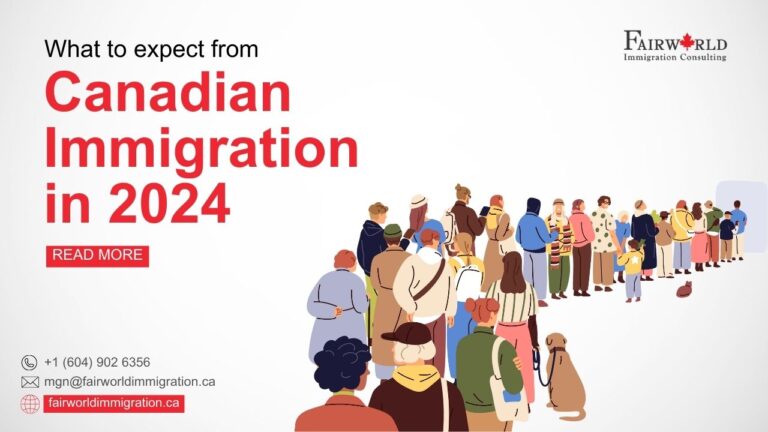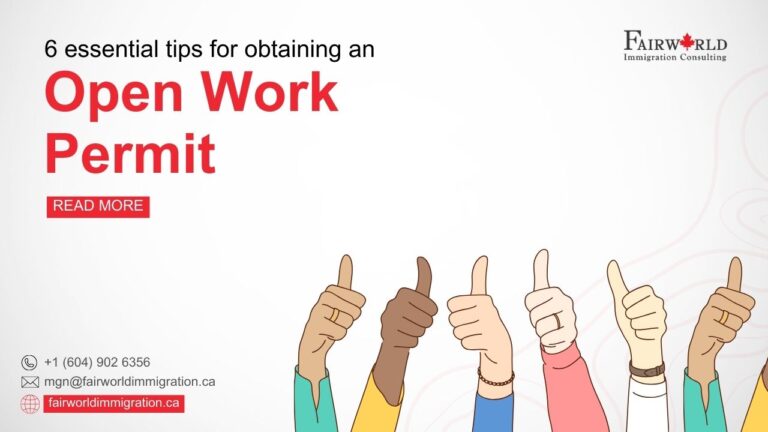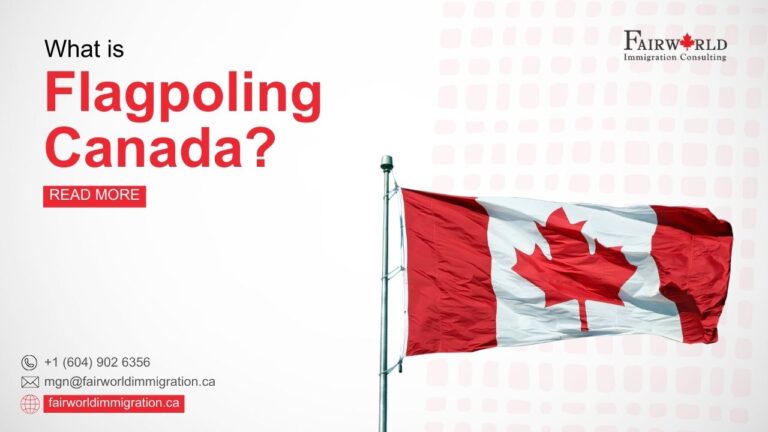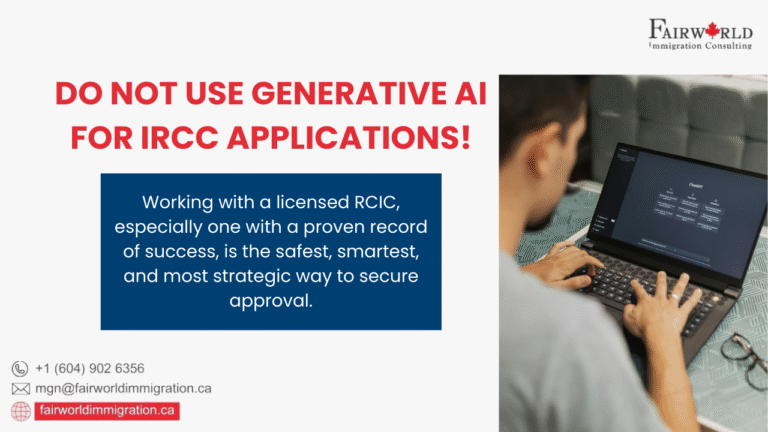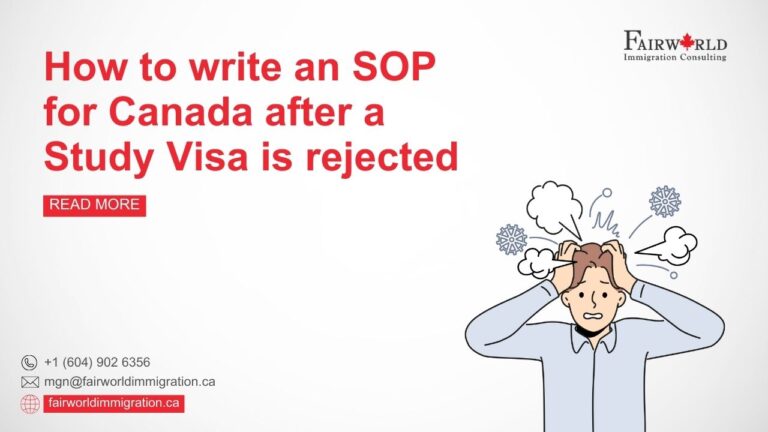Canada Work Permit: Everything You Need To Know To Work Legally
Updated on January 15th 2025 by Fairworld Immigration
Canada Work Permit – Many people like Canada because of its robust financial system and abundance of employment opportunities. Compared to the US, it has fewer unemployed individuals and many exciting occupations to select from! Why not think about a work visa for Canada if you’re considering moving abroad to work? Within two years of graduating from college, virtually all students get a career they learned for with excellent income and an amazing quality of life. Working in Canada is even more appealing since Canadians take pride in and love what they do.
WORK PERMIT STATISTICS
Canada issued visas to more than 4 lakh foreign applicants in 2021. Canada offers many options for you to build a successful financial future. For professionals from other countries seeking employment prospects in the country, a Canada work visa or Canada work permit is required.
One of the most developed economies in the world, Canada is a terrific location for job seekers. You must secure a job offer from an authorized employer in Canada to obtain a work permit there. Employment and Social Development Canada (ESDC) supplies a potential employer with an LMIA (Labor Market Impact Assessment). It enables the company to hire talented international employees.
WHAT ARE THE DIFFERENT TYPES OF WORK PERMITS?
LMIA-Based Work Permit
The Temporary Foreign Worker Program (TFWP) allows employers to hire foreign nationals to fill temporary labor and skill shortages in Canada when qualified Canadian citizens or permanent residents are not available. Employment and Social Development Canada (ESDC); Immigration, Refugees and Citizenship Canada (IRCC); and the Canada Border Services Agency (CBSA) share the responsibility of evaluating and issuing work permits under the TFWP, as well as ensuring employers remain compliant with its rules.
Employer-Specific Work Permit
This kind of work authorization is connected to a particular Canadian employer and occupation. Your employer in Canada must normally acquire a favorable Labor Market Impact Assessment (LMIA) or be exempt from the LMIA requirement in order to apply for an employer-specific work permit.
Work Permit for the International Mobility Program (IMP):
IMP work permits are provided under certain agreements, such as free trade agreements or international accords, making it simpler for some. However, they are employer-specific.
HOW TO OBTAIN A WORK PERMIT IN CANADA?
An outline of the general procedures for acquiring a work visa for Canada is provided below:
1. Find an employment Offer: you need to find a legitimate employment offer from a Canadian firm. Depending on the situation, an LMIA may be required from the employer.
2. Gather Required Documents: Compile any required paperwork, such as a job offer letter, a passport that is currently valid, evidence of credentials, and any other paperwork that may be required in your particular circumstance.
3. Verify Your Eligibility: Make sure you satisfy the requirements for the particular kind of work visa you are asking for.
4. Apply for a Work Permit: You can apply for a work permit online or by visiting a VAC in your home country. Pay the necessary fees.
5. Biometrics and Medical Exam: You could be required to give biometrics and go through a medical exam, depending on your place of origin and the sort of work you’ll be doing in Canada.
6. Participate in an Interview (if Required): You could be invited to participate in an interview at the Canadian embassy or consulate in your area.
7. Await the Decision: After submitting your application, you must wait for the result. Depending on the type of work permit you have and your home country, processing periods might vary.
8. Obtain Your Work Permit: If your application is accepted, you will obtain your work permit for Canada. It will include information on your employer, employment, and work permit’s length.
What to do in case of a rejection?
An application for a work visa being rejected can be upsetting, but it is not the end of the journey. We will assess the reasons for your rejection and let you know if making a new application with stronger information is the way forward. You can overcome this rejection and focus on the path ahead by comprehending the reasons for refusal, investigating your choices, and developing a strong appeal strategy.
Fairworld Immigration will be at your side, utilizing our knowledge to steer you toward a favorable end, whether you are reapplying with updated information, appealing the decision, or referring you to a lawyer for requesting a judicial review. Remember that the road to your Canadian trip might have taken a detour. Nevertheless, you may get back on track and fulfill your travel dreams if you have the right support and the will to do so.
Contact us today!
📞+1 (604) 902 6356
📧mgn@fairworldimmigration.ca
📍300 – 3665 Kingsway, Vancouver, BC V5R 5W2, Canada
